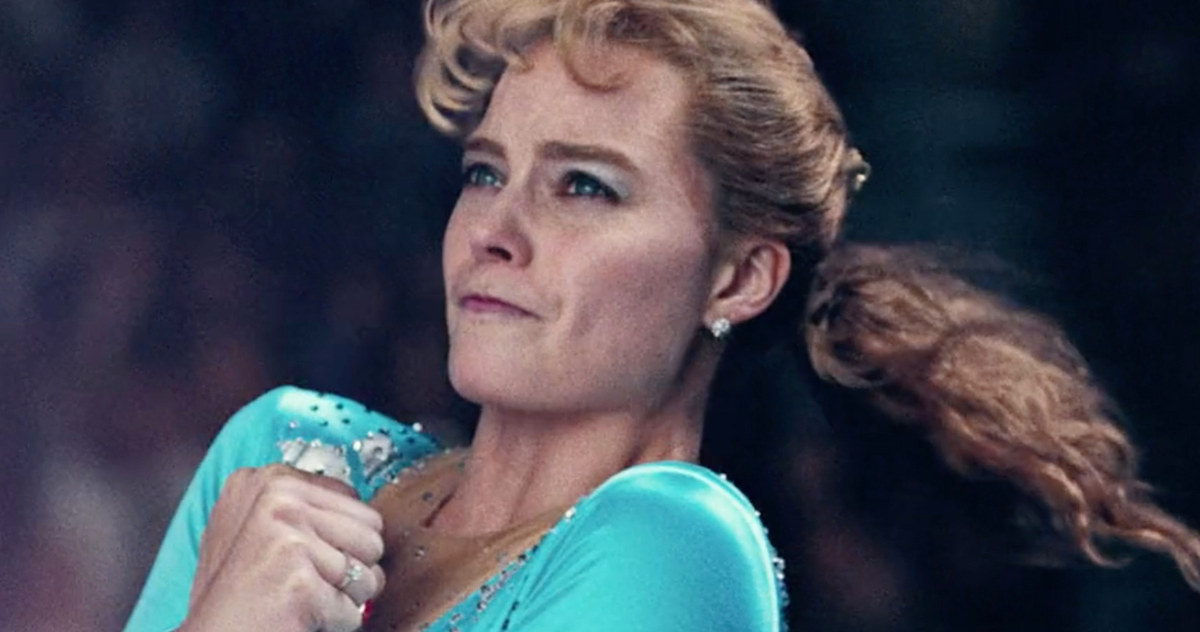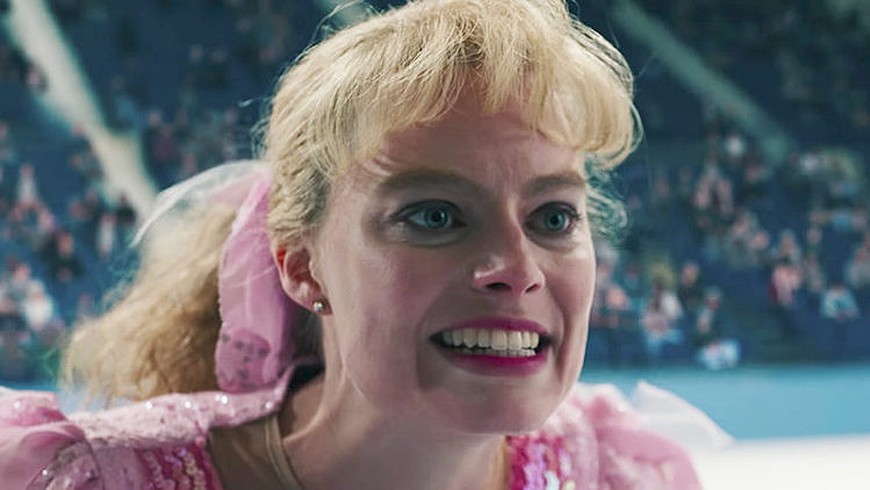THE BRILLIANT WORLD OF I, TONYA
Saba Mengi
Humor generally works as an acceptance of hard, unchangeable reality in all of our lives. In this case, telling Harding’s story of success in this manner, which was doomed to crash and burn, is more than perfect, because dealing with difficult situations we often tend to make jokes about it and this helps us somewhat “normalize” what we’re going through. Since the movie’s main aim isn’t to point blame or inflict sensibility, ‘mock’umentary is the way to go.
This years Oscar nominated movie “I, Tonya” contains lots of elements and complex ways of filmmaking that most of the directors and screenwriters would be intimated to pursue. It is a drama that takes place in Portland, Oregon which promises to tell us the real story of Tonya Harding, a figure ‘ice skater’, using "based on irony free, wildly contradictory, totally true interviews” with Harding herself, her ex-husband and her mother.
Tonya is an ice skater coming from the working class, who grew up with an extremely abusive mother and faced discrimination in her field even with the enormous talent she had because she wasn’t “pretty enough” or simply born in the wrong family and social class. This story of Tonya Harding, which easily could have been a cry-your-eyes-out drama movie or a documentary on the real life of a hated public figure, is portrayed by Craig Gillespie’s movie in such a way that instead a dark sense of humor gets along with the audience. The brilliance lies in the director Gillespie’s decision of using faux documentary (or mocumentary) technique and constantly breaking the forth wall throughout the movie to give us a very real story in a way which is both painfully accurate and hysterical. We can see how the whole life of Tonya Harding has been approached as a big joke by the scenes where she was harshly abused: During the interviews, Tonya talks to the camera, trying to cover her bruised eye after a fight with her husband Jeff Gillooly, forgiving Jeff repeatedly although he keeps hurting her continuously and while doing so actually telling the audience that the reason why she thinks “abuse is real love” derives from the damage her mother done in her childhood by her unique abusive behavior, which hasn’t come to an end even when she is a successful grown up woman.

The movie promises never to offer the true story of what actually went down regarding Tonya’s real life and her relationships as well as the “the incident”. The incident refers to the scandal that took over USA in 1994 when Nancy Kerrigan, Harding’s main rival, was seriously injured right before competing with Harding prior to the Olympics. We see the most delusional character Shawn, who constantly claims that he is Tonya’s bodyguard but in reality, is just a schizophrenic grown man living in his parent’s basement, as the person of interest for the incident but Tonya Harding’s involvement, for me as well as for the audience, is still left vague as much as any other detail of her life. After the attack on Nancy Kerrigan, Shawn and Jeff served time in prison and Tonya was banned from skating for life, which for her is the same thing as a life sentence.
The movie doesn’t aim to tell the real story of a hated, discriminated woman or to raise awareness by giving to the audience a lesson on class difference; but also it is definitely not a documentary on a scandal so rather than trying to find a real storyline to believe in, audience is left to enjoy movie’s smart dark humor and afterwards to feel a sense of responsibility regarding the delicate issues that are discussed throughout the movie. Kirk Baird on his article on The Blade says “It’s a loose but effective and engaging format as a biography, one that elevates the film’s bent as a dark and often sardonic comedy, even juxtaposing the dramatic and serious with a wink and nod…(Baird, 2018)”. Humor generally works as an acceptance of hard, unchangeable reality in all of our lives. In this case, telling Harding’s story of success in this manner, which was doomed to crash and burn, is more than perfect, because dealing with difficult situations we often tend to make jokes about it and this helps us somewhat “normalize” what we’re going through. Since the movie’s main aim isn’t to point blame or inflict sensibility, ‘mock’umentary is the way to go. Humor covers up lots of things in movies and, in this case, the movie gives us a sense of relief while watching this completely unfair story of Harding. However, we as audience, are still sensitive towards abuse and explicit content no matter how much it has been mixed with humor, that is why the effect goes on after watching this movie. When we finish watching it, we come back to our reality and actually start to think about the things she went through and it’s realness. Baird continues his argument by saying:
“…while gleefully playing up the humor of all this, I, Tonya also does something else rather well. It quietly and effectively turns Harding into something much more than a punchline, but a person… reflecting on her life near the end of the film, Harding looks at the camera (us, really) and says, "I thought being famous was going to be fun. I was loved for a minute. Then I was hated. Then I was just a punchline. It was like being abused all over again, only this time it was by you. All of you. You’re all of my attackers too.(Baird, 2018)”

While doing this trick also the background of the movie is filled out with the questions like “What is pretty?” “What is artistic?” “Why wasn’t she accepted?” and the most crucial one, “Who decides so?” In theory, figure skating is a sport which based on talent and lots of hard work. You have to earn your place in it, but if so, is it fair that the person who was working every day since she was 4 and was the first skater ever in the history of this sport who managed to complete a triple axel was discriminated and pushed away just because she does not belong to the privileged socio-economic class which actually decides the high artistic norms and distinctive perception(Bourdieu, 1993)? A boy of color from slums of Ohio can become the greatest basketball player of history but a woman, who is the best so far in figure skating, of working class has still not even recognized today just paints a clear picture of how deep the roots are of prejudice and presumptions regarding the cultural value through the art of skating.
I cannot imagine that there is not even one person who hasn’t googled Tonya Harding right after watching the movie, especially foreign viewers who had no idea who Tonya Harding even was. That is what the movie does brilliantly, after watching it, we want to know the real story behind it. We need to know. We need facts. We need to see if there was a motive for the ongoing discrimination she has faced throughout her skating life or was this all a setup for cutting her out. But at the end, again, we end up with nothing as audience because all the press news about her was against her, no one even questioned what happened behind the jury’s table, and the movie’s subtle message is in fact: “well, it is time to.”
Director and screenwriter knew that the audience need to complete the storyline in their heads and used that in a very majestic way. The movie raised an awareness to an overlooked issue of Tonya Harding through explicitly not bringing her case to forefront. Yet, by this, they turned an enormously hated woman into a human being that the audience can empathize with, and no one saw it coming.
Baird, K. (2018, January 18). Faux documentary humanizes figure-skating punchline. Retrieved June 1, 2018, from http://www.toledoblade.com/Mov... Bourdieu, P. (1993). Language and Symbolic Power. (J. Thompson, Ed., G. Raymond & M. Adamson, Trans.) (1 edition). Cambridge, Mass.: Harvard University Press.
previous
article
next
article Twitter Google Plus Facebook
